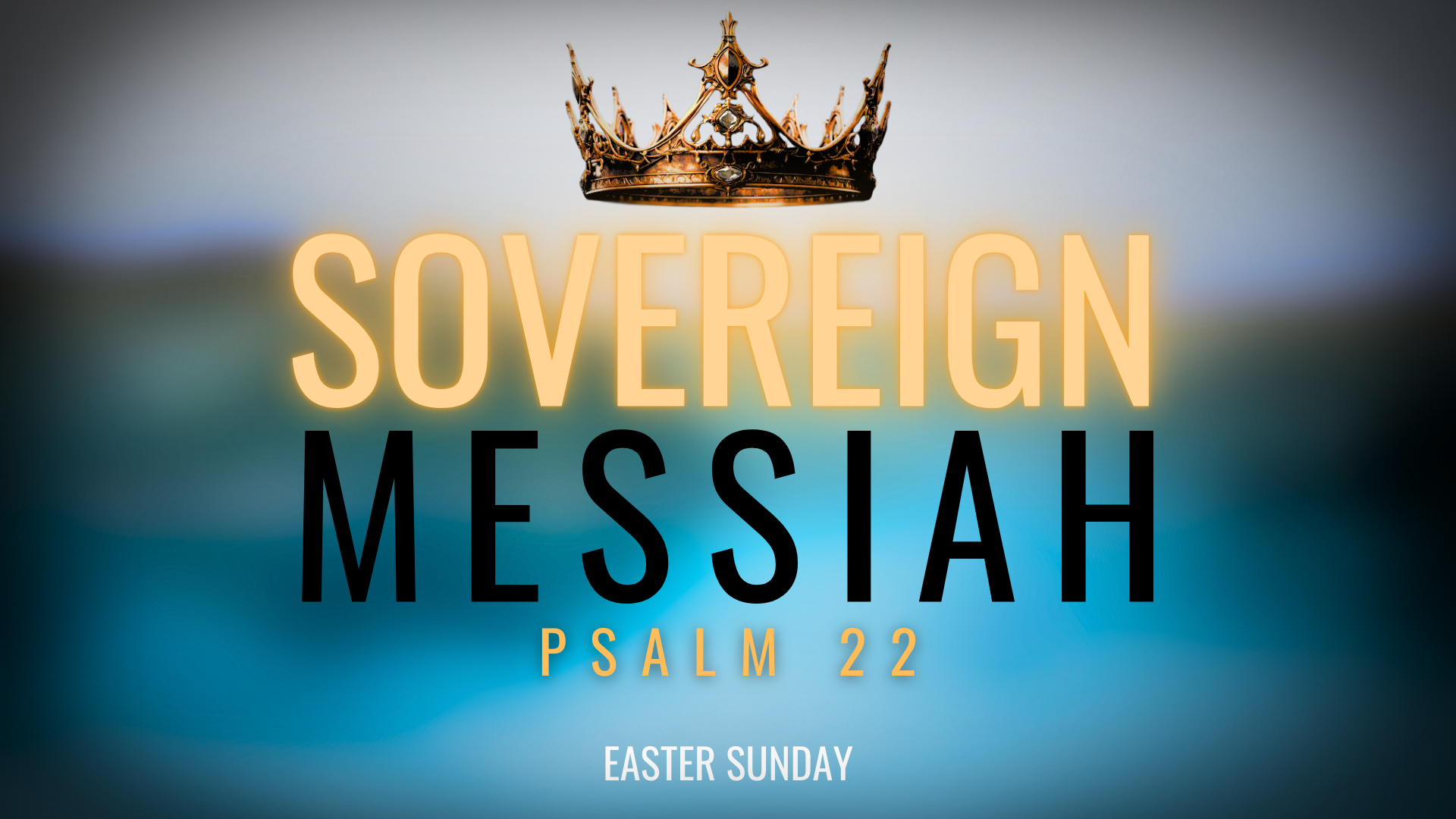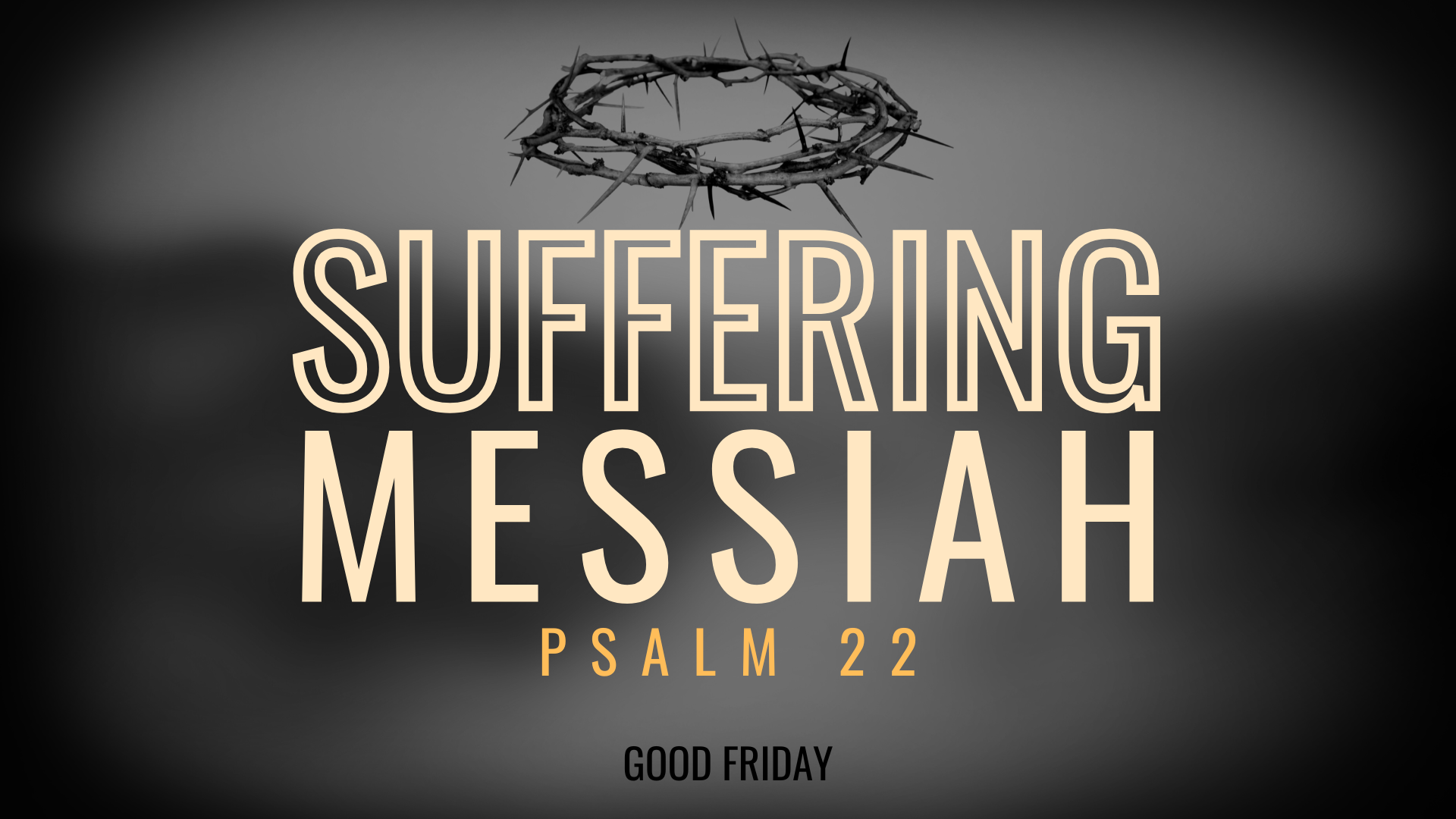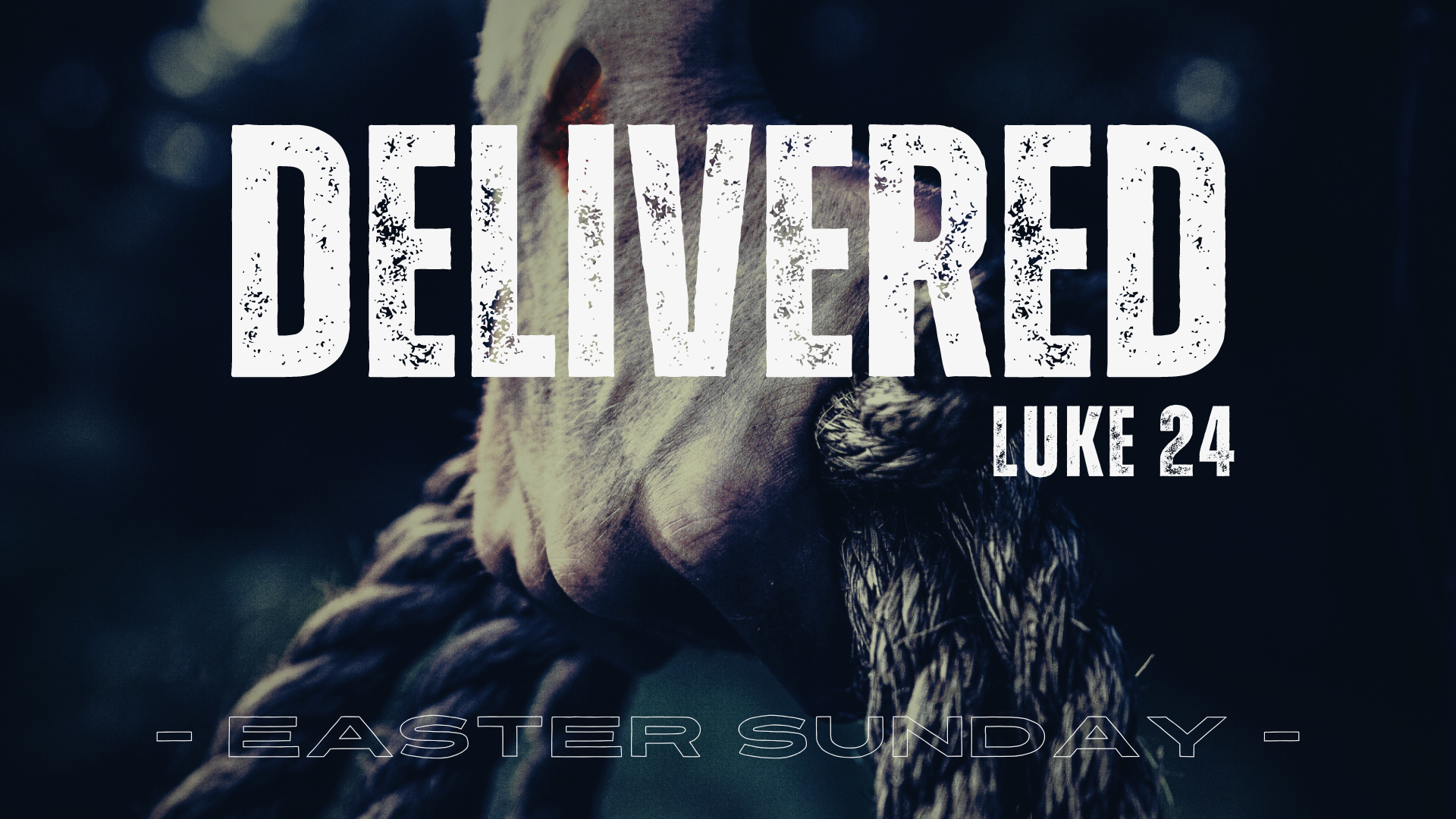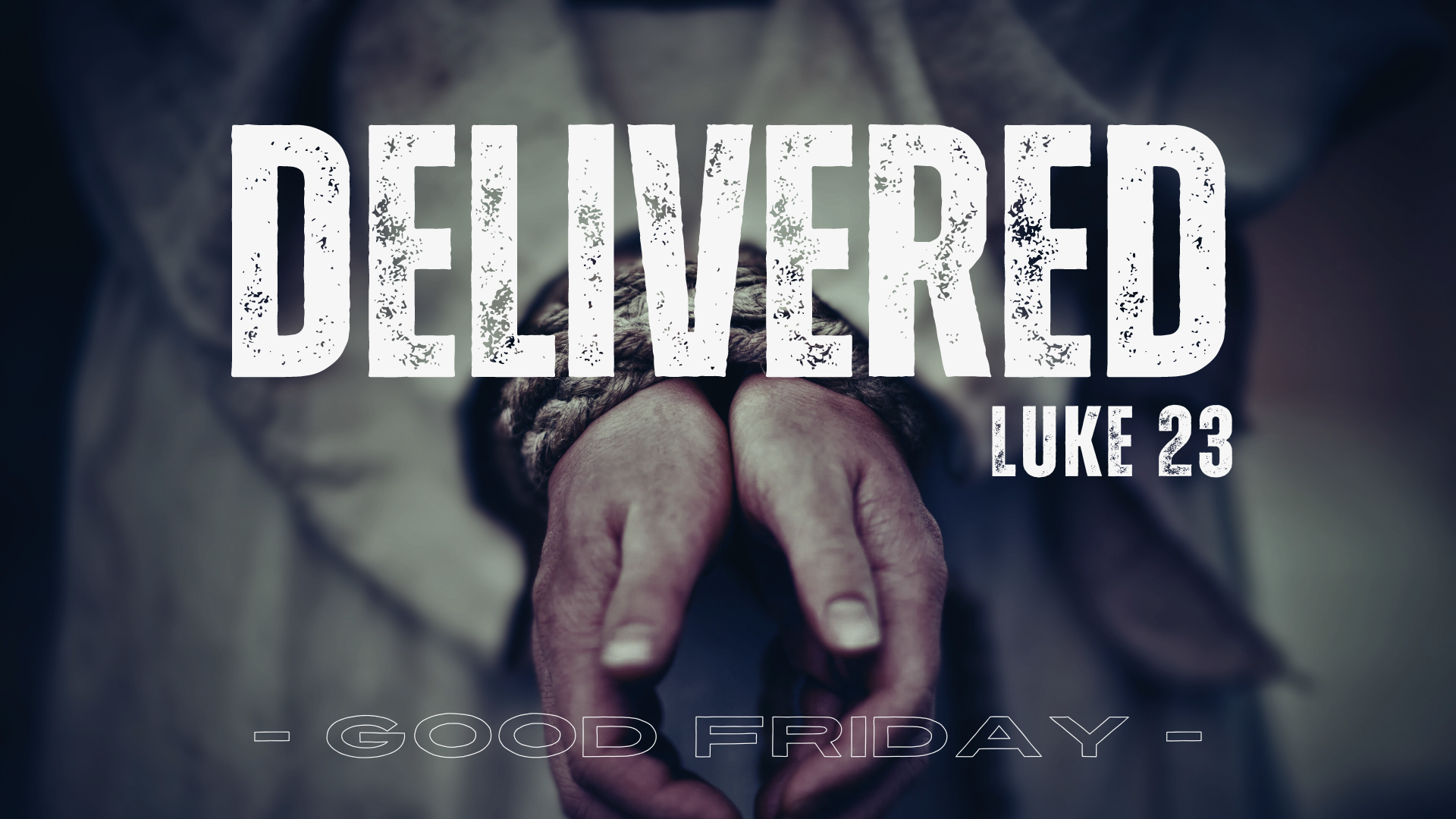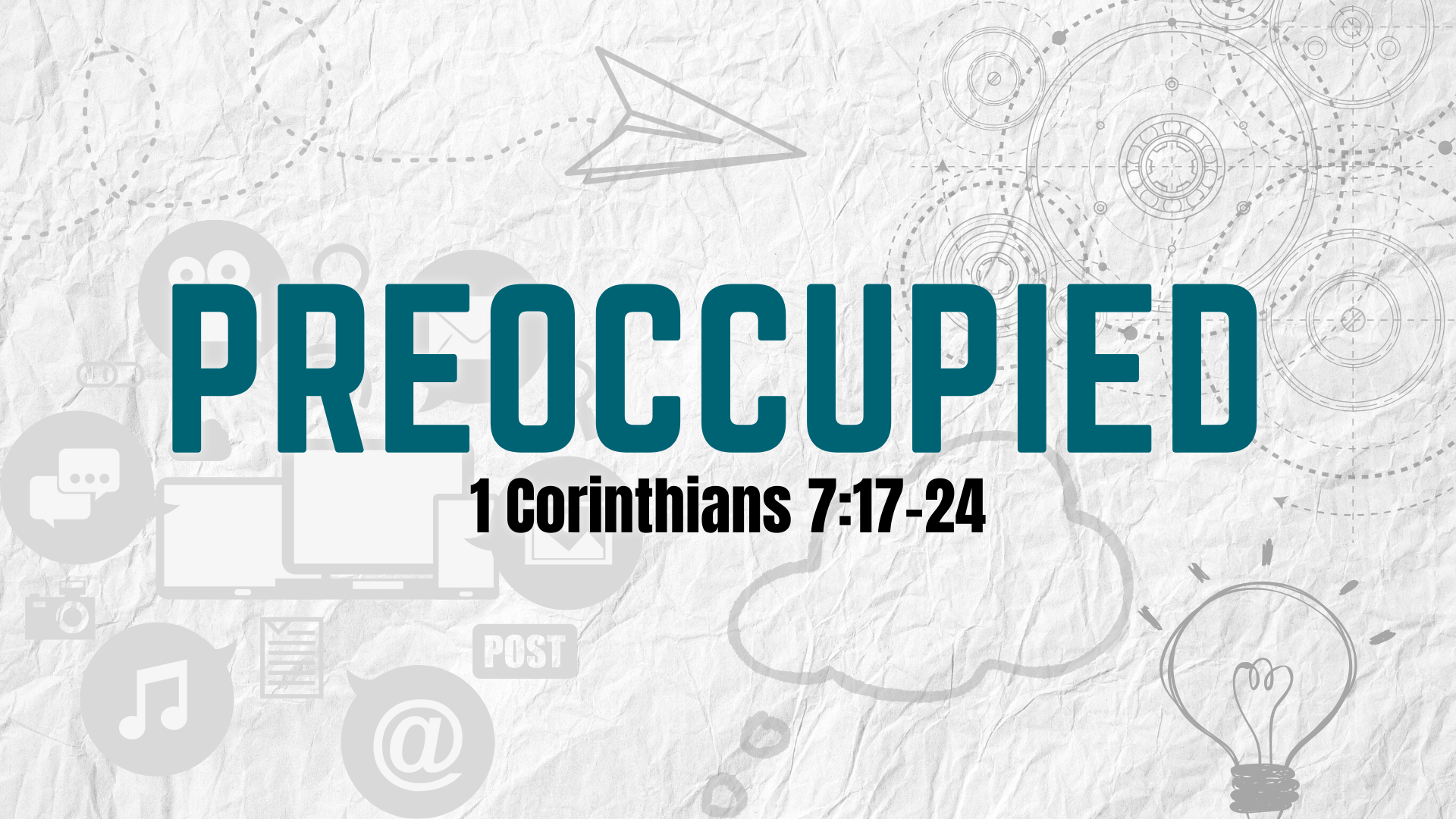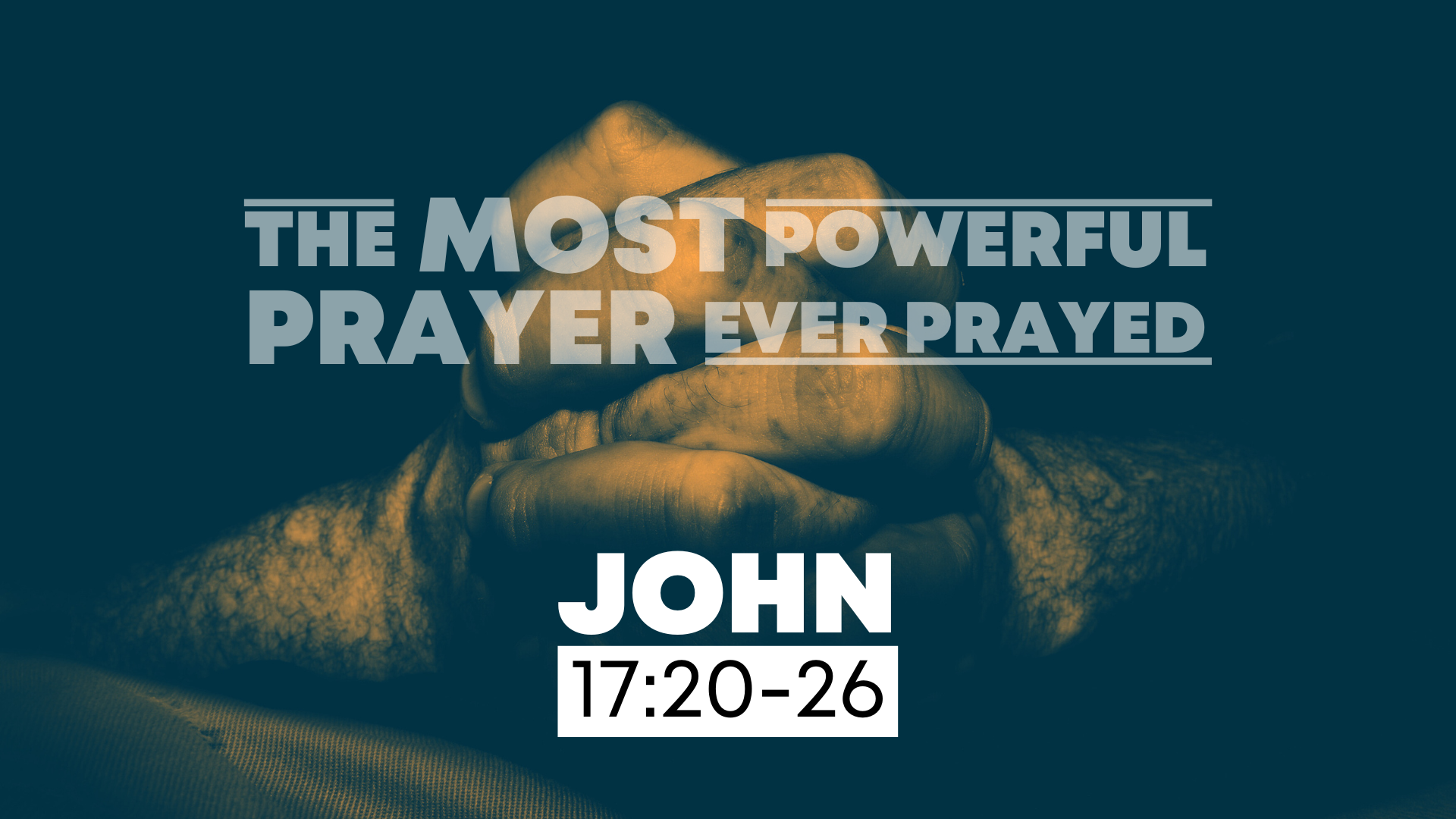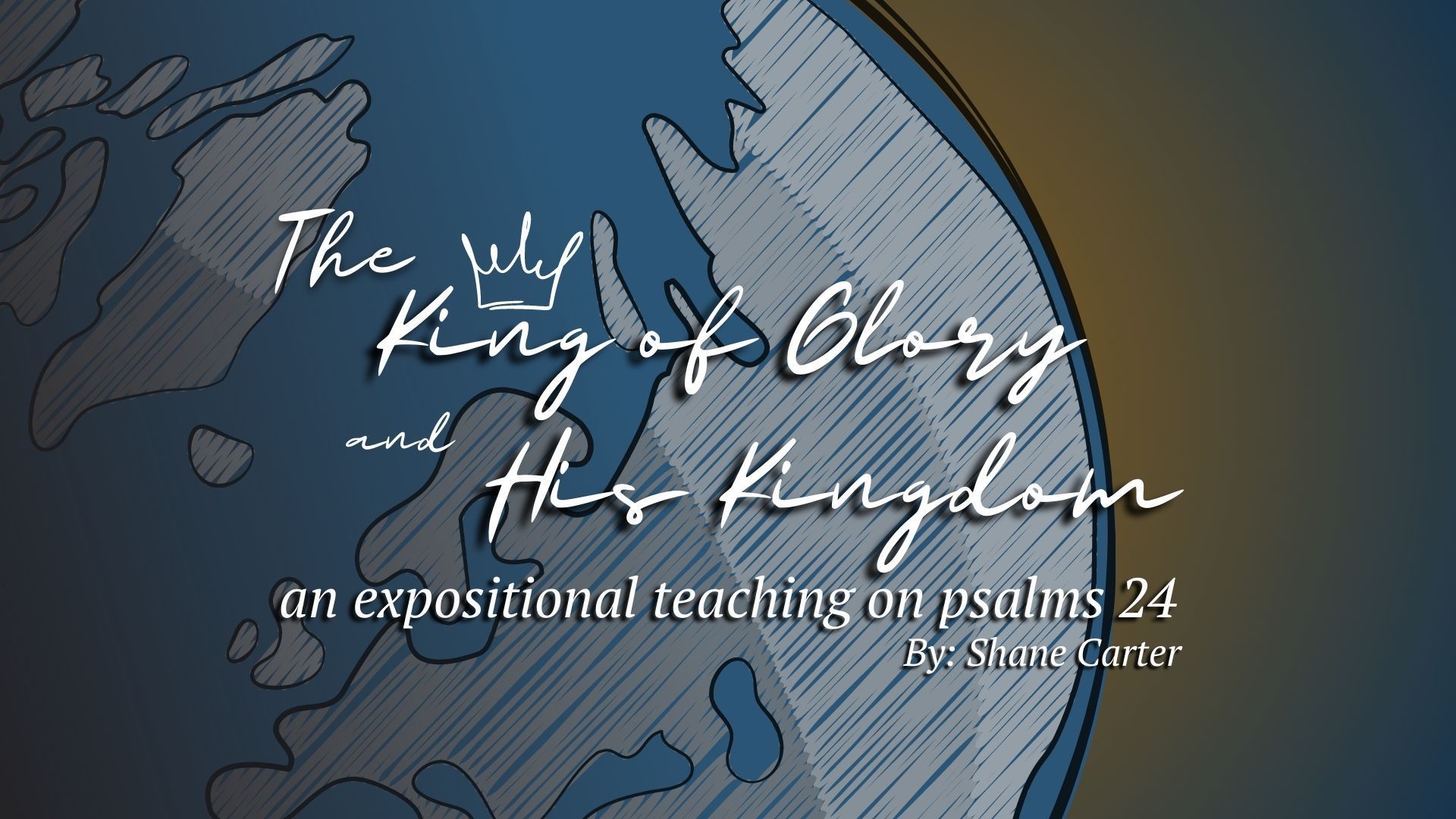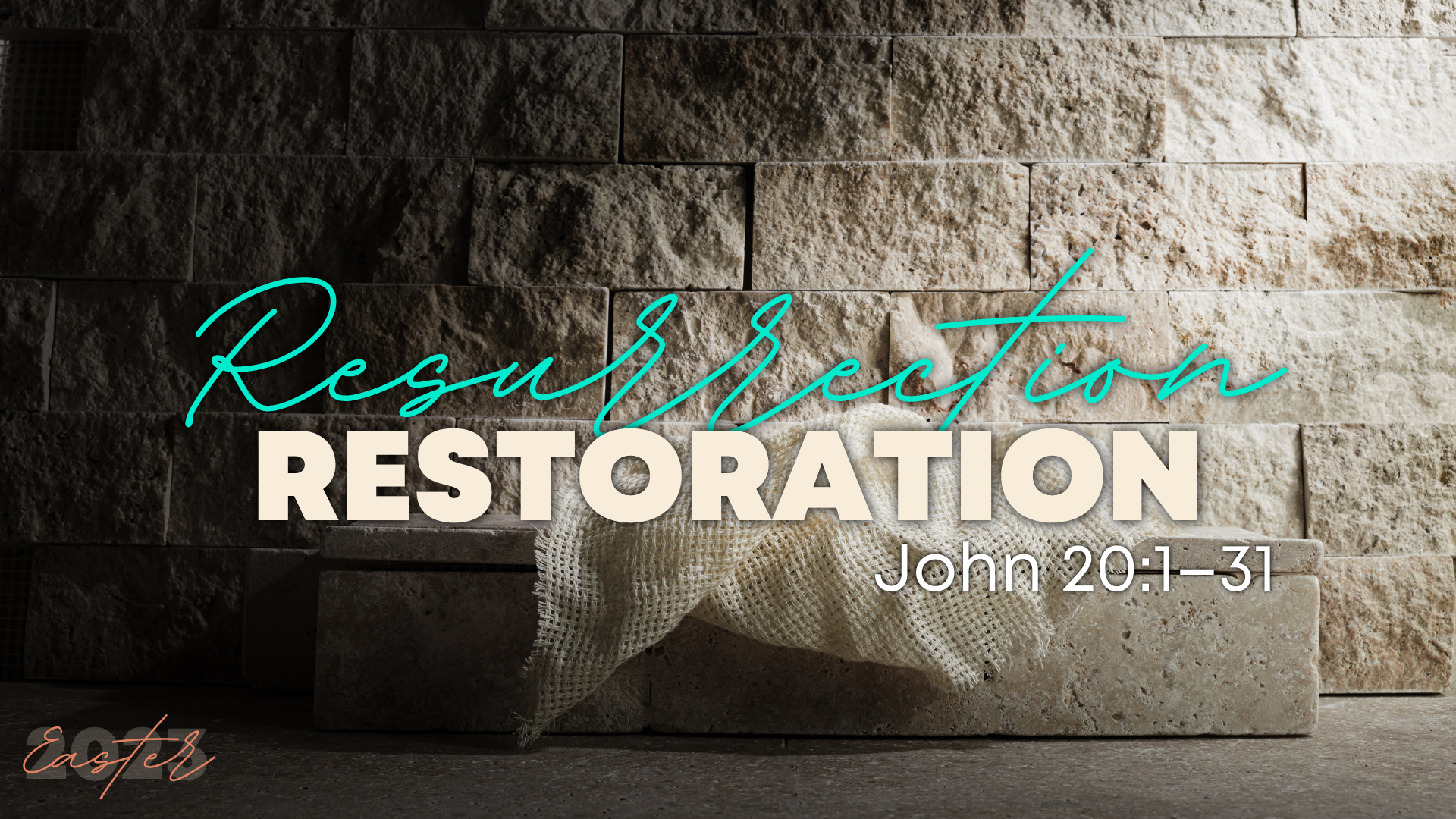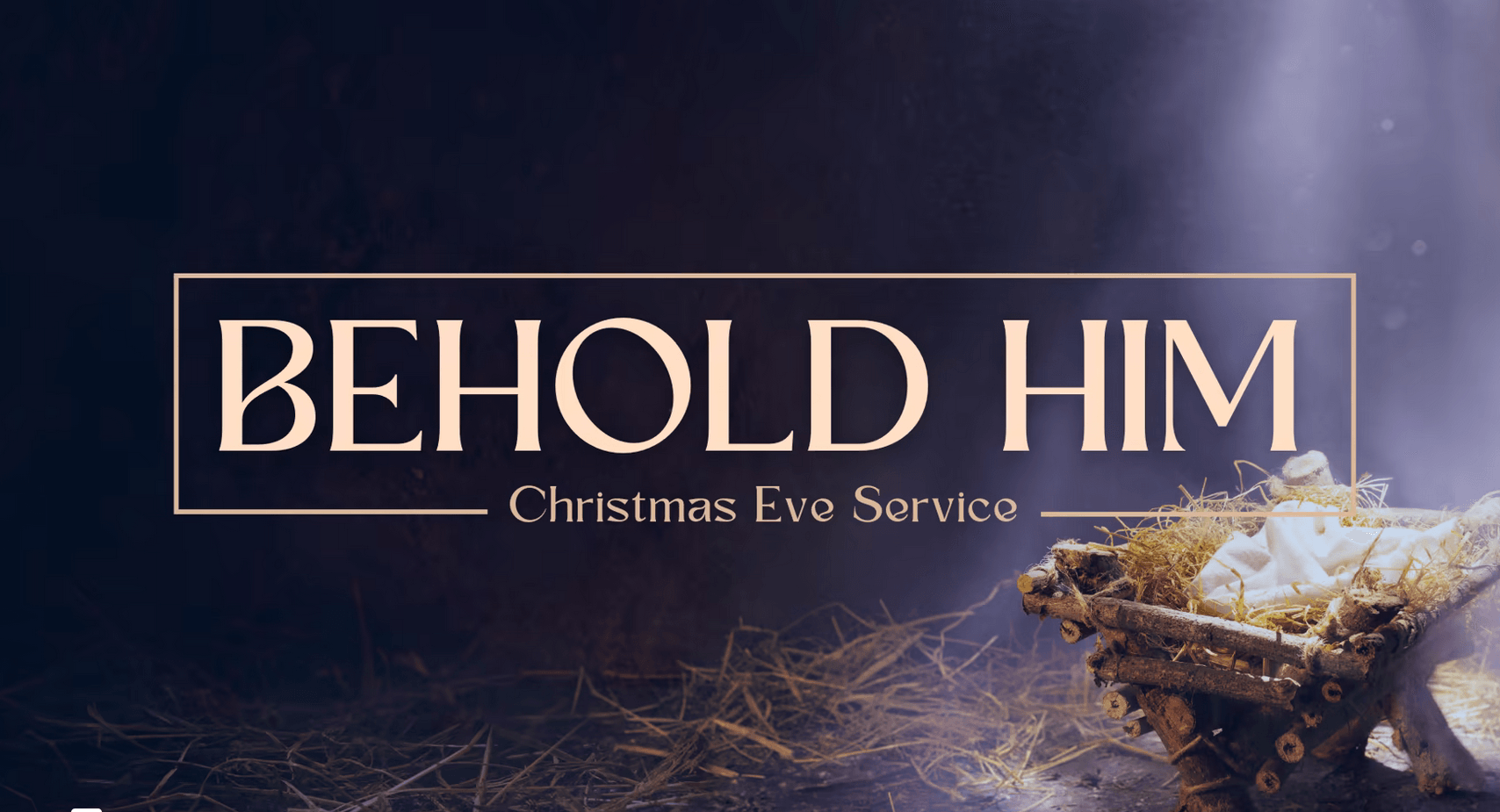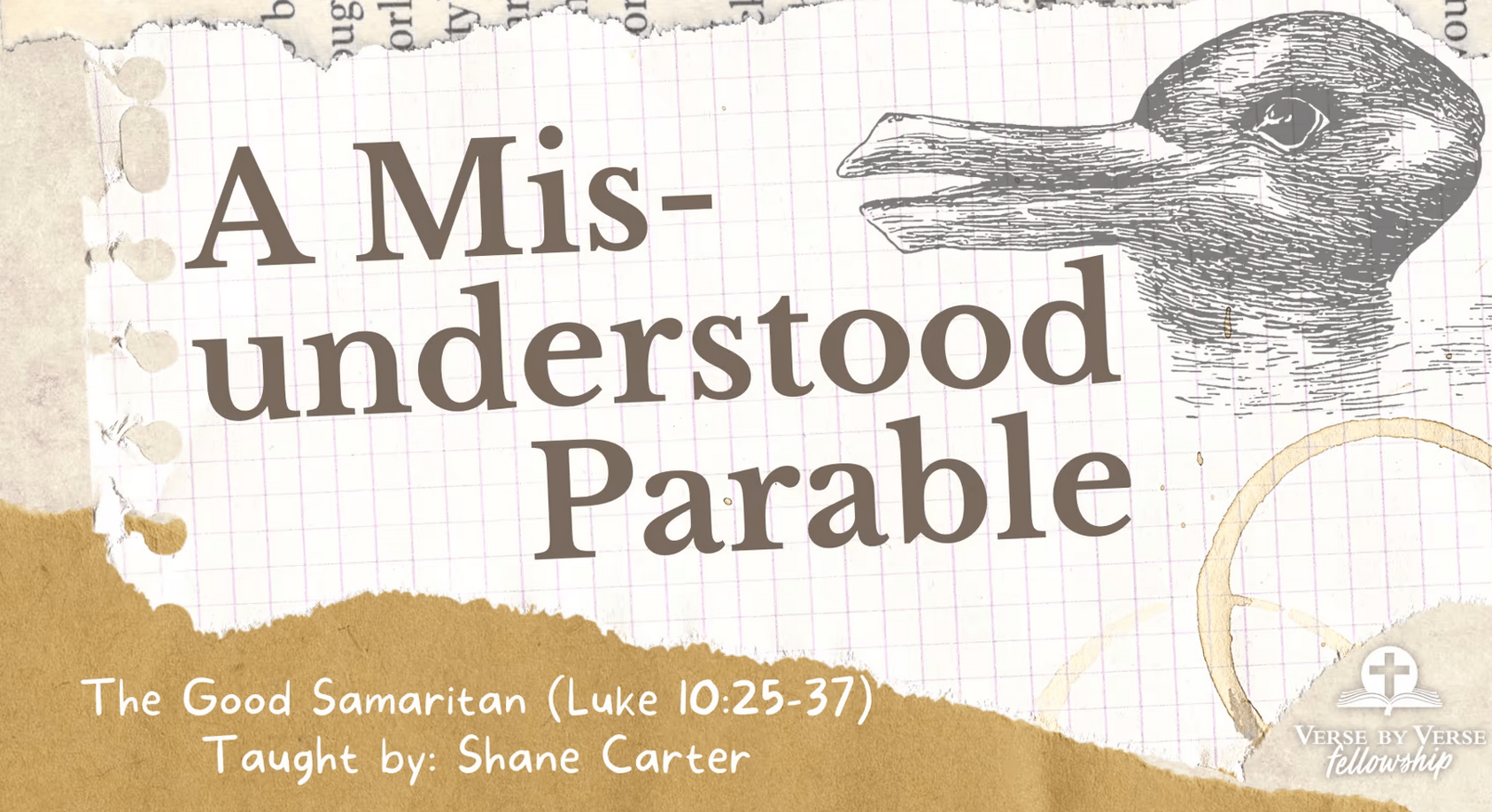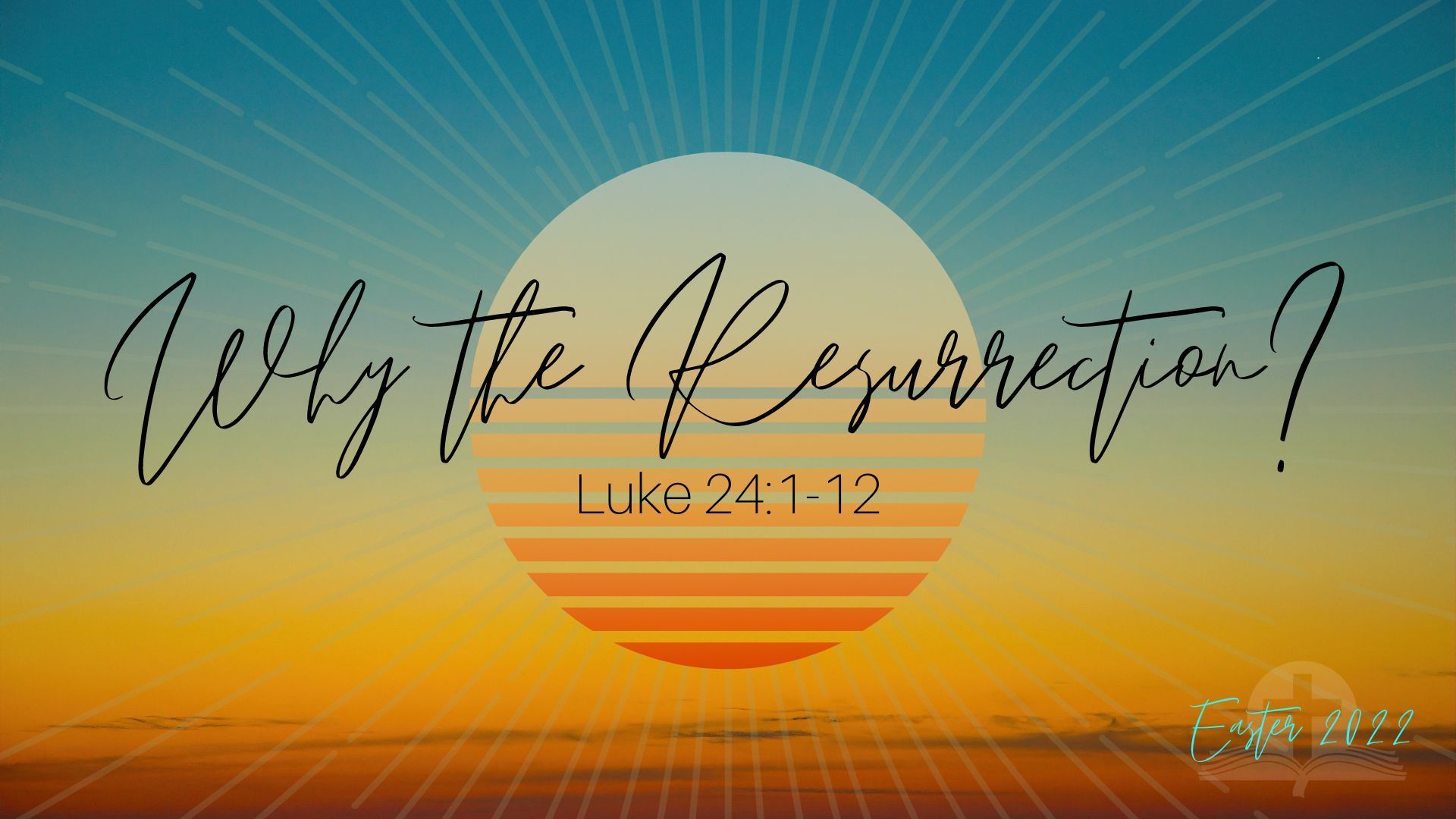MANUSCRIPT
I'm going to start tonight with a question. It's question time. I think it's the question that motivates all of us. I think it's the question that motivates everything we do. I think it motivates every single person on the planet, and it is this. How can I be happy?
How can I be happy? Every single person on the planet is trying to answer that question. And we've been trying to answer the question for hundreds of years, definitely, probably thousands of years, all the way back to when Jesus was speaking these words. There's a French philosopher named Blaise Pascal and he wrote this. "All men seek happiness. This is without exception.
Whatever means they employ, they all tend to this end." So, no matter if you're living life in the fast lane, you're looking for fulfillment in the thrill of stimulation and risk, or you avoid risk like the plague, trying to keep everything safe and close, both approaches are pursuant to the same goal, which is happiness.
And even if somebody lives a life of self-sacrifice or drudgery, it's because, deep down inside, that is what they believe will bring them the most happiness, one way or another, even if it doesn't make sense to the people on the outside. So this question, "How can I be happy?" is the basis for nearly every advertisement, right? It goes something like this. You would be happy if you owned this, if you ate this, if you wore this, if you watched this. Economies depend on the pursuit of happiness, and our country's most foundational document, the Declaration of Independence, protects its citizens' right to pursue it. Not all countries do, but even those that don't are still set up in such a way that somebody is going to be happy. Normally, it's a guy at the very top, right? Even if it's not everybody at the bottom, it's one guy at the top. And every dollar, we could probably make the argument, every dollar that we spend is in service to the happiness of somebody. We want to be happy. This is the question, the pursuit of mankind.
And tonight, we are going to answer that question, "How can I be happy?" So, if you haven't already, pull out your Bible, turn to John 15. We're going to be looking at verses 1 through 11, which Catherine just read.
So, let's take a look at verses 1 and 2. John chapter 15, verses 1 and 2. Jesus is speaking, and he says, "I am the true vine, and my father is the vine dresser.
Every branch in me that does not bear fruit he takes away, and every branch that does bear fruit he prunes that it may bear more fruit." So, Jesus is setting up a metaphor here. He's helping us to understand what it looks like to follow him, what a believer's life might look like. And he's calling himself the vine. But he's calling himself more specifically the true vine.
And that's kind of odd, right? Are there fake vines? Are there vines that are pretending to be vines that aren't really vines? Well, not quite, kind of, not quite. There are a bunch of places in the Old Testament where Israel is referred to as a vine. So there are many places in the Old Testament. We've got Isaiah, Ezekiel, Jeremiah, Hosea, and Psalms. All of these books use the metaphor of Israel as a vine.
So, listen to this verse in Isaiah 5. This is really cool. It says, Isaiah 5:7 says, "For the vineyard of the Lord of hosts is the house of Israel." "For the vineyard of the Lord of hosts is the house of Israel, and the men of Judah are his pleasant planting." And he looked for justice, but behold, bloodshed. He looked for righteousness, but behold, an outcry. And here's another one from Jeremiah. Jeremiah 2, 21 says, "Yet I planted you a choice vine, holy of pure seed. How then have you turned degenerate and become a wild vine?"
So, these verses establish two things for us. Firstly, we see very clearly that Israel is pictured as the vine.
God has planted Israel, has been tending it for hundreds of years. And then, secondly, we see through these verses that they have gone astray.
They are no longer what they once were intended to be. And this is why Jesus says, "I am the true vine." Israel was once the vine through which life from God flowed to people. But now, that vine is Jesus Christ.
So Israel was once the vine that supplied life to God, or life from God to people. And now, that's Jesus. It's from Jesus Christ that we receive our salvation and our eternal life. And so here in verse 1, he's calling himself the true vine, as opposed to the old, wild, degenerate vine of Israel. He also calls God the Father the vine dresser. He's assigning God that role in his metaphor. And this metaphor of a vineyard is, I mean, we've probably all seen at least a picture of a vineyard; maybe you haven't been in one. It's kind of simple. You've probably heard this scripture before, but there's a lot of richness here. And so, I think it's worth spending some time thinking about the pictures that he's using. So, when I say the word "branch," what image springs to mind? You're thinking of something that's long, right? Extends horizontally away from a tree, sometimes up, I don't know. It's maybe got fruit on it. It's got leaves, maybe needles, depending on where you grew up or what you think a tree should look like.
But without its connection to the trunk, a branch of any sort will die.
That's true. That's also true of Vines, right? So Jesus is calling himself the vine, and we branch off of him. We'll see that a little bit later in the text. And then God here is the vine dresser. And it's his job, the vine dresser, to make sure that the vine is healthy and it's serving its function.
It's producing fruit. The vine dresser is responsible for the production of fruit. And that's the main expression of God's role that we see here in verse 2. The main expression of God's role is as a vine dresser that prunes.
And pruning, if you don't know, is trimming things back. It's a temporary destructive measure that's intended to keep the branch and, by extension, the trunk, the entire tree or plant, healthy.
And oftentimes, the aim of pruning is more than that. It's to produce more fruit. It's to produce a higher yield of fruit. And it is an art. Pruning is an art. It's hard. It can sometimes take a lifetime to hone the necessary skill because if you prune too little, you're leaving potential fruit on the table. If you prune too much, you are potentially going to kill the branch. Or, at best, you're cutting off parts of it that could be producing fruit. So it's really easy to prune incorrectly. And it's really great that God is the one who's doing the pruning. It's really great that he is the master pruner, that he is the vine dresser in this metaphor. So he's making his intentional cuts with his divine pruning shears. And with those shears, Jesus says he does two things. First, he takes away. We'll talk about that more in a second.
Secondly, he prunes. Again, what is the reason for pruning? Let's look at verse two again. He says, "Every branch in me that does not bear fruit, he takes away. And every branch that does bear fruit, he prunes," here we go, "that it may bear more fruit."
The purpose of pruning is to produce more fruit. And it might be a little bit counterintuitive because you're cutting something back with the intent of improving its yield, but that's how pruning works.
And pruning is uncomfortable. Pruning hurts. Right? Let's anthropomorphize the branch for a second. Let's think about pruning from the branch's perspective. The branch is probably not thrilled at the idea of pieces of it getting lopped off by the shears. It probably doesn't look forward to the day when the cold steel of the trimmer cuts through it. It's turning its treasured self into just waste wood. And it probably sees every piece of itself as absolutely necessary. And if not absolutely necessary, then certainly not worth cutting off. He'd like to keep his branch material. Right?
However, if that branch is going to yield maximum fruit, it must undergo pruning. That is part of being a branch.
And when we branch off the true vine, pruning is promised. That's what's being promised to us here in verse 2. That's our first point for tonight. Pruning is promised.
God the Father prunes so that the branches may bear more fruit. And if you've followed Christ for long enough, you have experienced this pruning.
You have likely been pruned. You will likely be pruned if you continue following Christ. And I wonder now if you remember that circumstance, what it felt like to be pruned as a branch off the true vine. Maybe you're in the midst of it right now. Maybe you've gotten hit with a recent layoff. There have been a lot of layoffs happening. Maybe you got hit with one of them. And so that's pushing you to rely on the provision of God more closely, more deeply than you have before. Or maybe a dear relationship is coming to an end. Or you can, it has ended recently. And you can see, now that you've had some space from it, how that relationship was enabling sin. Or maybe enabling some wicked thought patterns in your life. Or maybe a health crisis has broken out. And it's causing you to realize that this world is passing away and our treasure is in the life to come.
All of these examples are painful, but they all produce fruit. They can produce fruit.
Whatever it is, whatever the reason or the method of pruning that God the Father chooses to use on us, Jesus is giving us a warning here to expect it. Pruning is promised, and it's not for the sake of your destruction. It's not for the sake of random torment. It always has a purpose.
God always has a purpose in pruning. Sometimes, we are the instruments of pruning in other people's lives. Sometimes, a word of correction, a rebuke. Sometimes a drawing back so that somebody can reap the consequences of their own sin. We can stop enabling them.
But remember, no matter how painful it feels when you are in the season of pruning, it's never random.
Its purpose is always so that you would bear more fruit. And as we'll see later, the bearing of more fruit will result in your joy.
So if you're unfamiliar with what fruit looks like, with what that means here, it's simply evidence of a life that's devoted to Christ. So, fruit is evidence of a life devoted to Christ. And it's sometimes displayed on the outside in our actions. We can see it. But it's always something that happens inside of us. It might look like a greater desire to be with the Lord.
It might look like compassion for enemies where you used to have nothing but hate toward them. It might look like patience with those who frustrate you. That is fruit. And God often uses circumstances that feel hard or feel painful, that feel like pruning to bring that fruit about in our lives. When we're thinking about this, it could be easy to get turned around here because we ultimately bear fruit as a result of our salvation through Jesus Christ. It's not the pruning itself that saves us. Look at what Jesus says next. He says in verse 3, "Already you are clean because of the word that I have spoken to you." Strangely, Jesus breaks out of the metaphor here, almost as an aside. Like he's leaning around the lectern and he's saying, "Already you are clean because of the word that I have spoken to you." And he's saying here that we are not cleansed by pruning. The cleansing has already happened. It's already happened in the past. So what's the cleansing?
The cleansing mentioned here is a euphemism for salvation. When somebody has been saved, they are cleansed from their filth. They're cleansed from their life of sin. The moment of salvation is the moment of cleansing. And so when the Father calls someone to him, they are forever changed right there in that moment they are clean. Romans 8.1 makes this clear. It says, "There is therefore now no condemnation for those who are in Christ Jesus."
So when you are in Christ, you are washed clean from your sin. The purpose of pruning is entirely different from saving. The purpose of pruning or the pruning process is a taking away. And salvation is an exchange, right? Jesus is exchanging his righteousness for our sinfulness, and pruning is taking off pieces that are not yielding fruit.
So in this verse, verse 3, Jesus might also be referring back to a conversation he had with Peter earlier in the book. Back in chapter 13, Jesus is dealing with what I think is some similar confusion. He's washing the disciples' feet to show that he came to serve and to cleanse. And Peter,
misunderstanding that Jesus' physical washing of the disciples wasn't salvific, he blurts out, "Lord, not only my feet, but my hands and my head also."
And he's thinking, in order to be aligned with Jesus, he's got to wash me. So wash my whole body. He's thinking, I need to be washed completely physically by Christ in order to be saved. And then Jesus says to him, "The one who has bathed does not need to wash except for his feet, but is completely clean. And you are clean, but not every one of you."
He's referring to Judas when he says, "But not every one of you." So now we have both here in chapter 13 with the washing of the disciples' feet and chapter 15 with the pruning. Jesus is making the same clarification. You are not cleaned by physical washing. You are not cleaned by pruning. It's the blood of Jesus, God's son, that cleanses us from our sins. This is the gospel. That's what Jesus means when he says, "By the word I've already spoken to you." It's the sum of his message. Our salvation comes through Jesus and nothing else.
But even though we have been cleansed, we don't stop needing Jesus. Take a look at verse 4. He says, "Abide in me, and I in you. As the branch cannot bear fruit by itself, unless it abides in the vine, neither can you unless you abide in me."
So Jesus is continuing now with this vine, branches, vineyard motif, but now there's a new word that we haven't seen yet. This new word is abide. So, let's learn some Greek. Ready?
All right. The word abide here is meno. I'm not going to put it on the screen. I'm not going to make you guys say it to one another, but just know that the word is meno. It's used 14 times in the gospel of John, and 10 of those times are in our passage here tonight. So it's important.
It means to stay. It means to dwell. It means to remain, to linger, but it doesn't mean taking a nap. Right? Like I love to abide on my couch, but that is not what Jesus means here. There's a dynamic energy in this word, and it is a little bit challenging to pin down a specific example or a specific definition of what this word might mean. But think of it like this. Live as if Jesus in the flesh was standing right next to you at all times. If that were the case, we wouldn't feel anxiety when we walk into a room full of people we don't know. If that were the case, we wouldn't feel the depression, the cloud of sadness when we are passed over for a promotion at work.
It's difficult to imagine what it might be like, but that's what he's saying here. He's asking us to live as if he is right there with us because he is. Christ is with us as we move about our day. You'll see that later in the text. And if we do this, if we do this abiding with him, we bear fruit. We'll start to see that peace will replace anxiety. We'll see joy replacing depression. We'll see anger turn into compassion, and all of this is spiritual fruit. And it's essential to recognize that this fruit is absent if we do not abide. Look again at verse four. It says, "As the branch cannot bear fruit by itself, unless it abides in the vine, neither can you, unless you abide in me." Jesus here is saying the production of fruit in our lives is entirely true.
It's entirely dependent on us abiding in him. It's not that we have some moderate amount of fruit on our own. We might make some measly apples or pears or something like that. We have no hope of producing anything apart from Christ. If you had, I mean, the picture is so clear, but if you had an apple tree or whatever kind of fruit tree you want and you cut one of the branches off that had fruit on it, is it going to make any more? It's not. It's done. That's right. And it's the same with us when we branch off the true vine. Christ is crucial. That is our second point. Christ is crucial. He's not optional. We need him in order for fruit to be born out of our lives.
And that is for our good. It's good that we abide in him. Look at what he says next. He says in verse five, "I am the vine, you are the branches. Whoever abides in me and I in him, it is he that bears much fruit. For apart from me, you can do nothing."
So he's restating the promise, or I'm sorry, he's restating the premise, and then he continues building the metaphor out a little bit. What does he say? He says, "Whoever abides in me and I in him, he it is that bears much fruit." He's not promising, again, a measly little spiritual crop of fruit. He's promising a bumper crop, harvest upon harvest year after year, constant fruit.
And when we abide in Christ, our lives will be like that. When we abide in Christ, our lives will be dripping with evidence of this, of that abiding with him. And remember, fruit is evidence of a life devoted to Christ. And when you abide in him, he promises much fruit. He's so kind to promise this to us. There are people out there who will try to say that they've discovered the one key to a fulfilling life in Christ, right?
I call them spiritual grifters because that's not true. They're trying to cheat you. They're trying to get your money or whatever. I don't know what they get out of it. But there's only one rule for fruit production. There is one rule, abide in Christ. And I want to say a word of comfort to those who feel discouraged by a seeming lack of fruit.
If you feel like you're struggling and if you feel like your victory over sin is like a flickering candle, take heart.
Jesus is described as gentle and lowly. If you feel like a smoldering wick, he's not going to snuff you out.
Listen to 1 Samuel 16 verse 7. It says, "For the Lord sees not as man sees, man looks on the outward appearance, but the Lord looks on the heart."
The Lord does not despise the weak and broken. On the contrary, his power is most often visible and is often most visible in those who are the weakest. So I don't want you to take away from this sermon that Jesus' love doesn't abide in you because you feel weak or because you feel distant from God. But what if you're not even trying to abide in Christ? What if you refuse to remain in him? What if, rather than choosing to abide, somebody chooses to abstain from Christ?
Look at verse 6. It says, "If anyone does not abide in me, he is thrown away like a branch and withers, and the branches are gathered, thrown into the fire, and burned."
This is the fate of those who choose not to abide in Christ. They are cut off and thrown away to rot and eventually burn.
So, Jesus is carrying on with his metaphor here, and he's doing it in a very direct, chilling way. He says, "Those who do not abide in him are burned."
And it's a metaphor, and so the metaphor of the vine and the branches. So if you're thinking through this and you're trying to turn it over in your mind, you might be thinking, "How can this be? How can someone be cut off that was once a part of the vine?" Wouldn't that mean that you could lose your salvation?
I mean, that is a massive question with huge foundational implications for our faith. So I want to talk about it. Let's consider Judas as an example. So remember how we mentioned him earlier? Jesus said, "You're clean, but not every one of you."
Jesus said, "You're clean, but not every one of you." He was still hanging around. Judas was still hanging around. He was with Christ. He was day in, day out, going in, going out. He was one of the original 12 guys, and yet he was cut off, and he was burned. No fruit. Nothing. That's what we know about Judas based on verse 2. Despite the fact that he spent three years with Christ, he looked as though he was attached to Christ. He was cut off. From the outside, everybody thinks Judas is with him. Judas is with, is one of the guys. He's a disciple. Nope. The Lord looks at the heart, and when he looked upon Judas and saw his heart, he saw no fruit, which is evidence of a lack of abiding in Christ. And so rather than pruning, Judas is cut off. And this is a warning, friends. This is a warning. Do not fake your faith.
It's not a warning just to do things to try to prove that you're saved. Don't try to do more and produce more fruit. We already saw. Our works don't save us. Verse 4 says, "You cannot produce fruit apart from Christ." The fruit is a secondary indicator of the abiding relationship you already have with Christ.
So this also isn't a warning that you might fall out of grace with Jesus. Like we said earlier, he died for us while we were yet sinners. So for those who abide in Christ, fruit will follow.
And when there is no fruit, if there is no fruit, it's illustrative of a deficiency of that branch to abide truly in Christ.
Again, Judas, while he looked like he was attached to Christ, he was certainly attached to Christ in the physical world, did not truly abide.
So, if you do not abide in Christ, you will be cut off and burned. And that is a euphemism for eternal destruction. That is a euphemism for hell.
And God is just to condemn sin. And those who prefer their sin to God will experience unending suffering at the hand of God for all eternity. But today, he offers mercy.
If you're hearing this right now, he is offering you mercy. In our text tonight, Jesus is speaking. He's speaking to the disciples hours before he's slain for the sin of the world. And he's about to be nailed to the cross, suffering not only excruciating physical pain but spiritual separation from the Father, all as part of the judgment that God levels against sin. His perfect life is about to be exchanged for every sinner who repents. And there is no other way. In order for all of this to happen, you must have Christ. Christ is crucial. So trust in Jesus if you haven't already put your trust in Jesus’s sacrifice to cleanse you from your sins.
And when you've done this, know that fullness of joy is available to you. How is that possible? Well, let's keep reading. Let's go to verse seven. It says, "If you abide in me and my words abide in you, ask whatever you wish and it will be done for you."
So this promise is crazy, right? This promise should revolutionize your prayer life. If you've encountered this before, maybe you're encountering this for the hundredth or thousandth time. I realize that this probably has lost some of its meaning, kind of like when you say a word over and over again, you kind of forget what it means.
But listen, listen to the words, "Ask whatever you wish and it will be done for you." It's unbelievable. It sounds like we're getting closer to the question, to the answer of the question, "How can I be happy?"
We're getting closer. This promise seems too good to be true. How can this be possible? How could it be that we could have whatever we want if we just ask?
Well, let's look at another verse with a similar message. It's Psalm 37.4. It says, "Delight yourself in the Lord and he will give you the desires of your heart." Now I want to be responsible Bible readers tonight. We're all going to be responsible Bible readers, right? Everybody raise your right hand. We're going to be responsible Bible readers, right? This is where some people jump off. They get a little bit weird, right? They see, I get whatever I want as long as I ask for it, and they start to get really weird. So I'm going to read these two verses again, and I'm going to put some emphasis on certain clauses. So, here we go. John 15.7. "If you abide in me and my words abide in you, ask whatever you wish and it will be done for you." I would put it, you know, if I could make my own translation, I would say, "If my words abide in you and my," or I'm sorry, "If I abide in you abide in me and my words abide in you, then ask whatever you wish and it will be done for you." Psalm 37 verse 4, "Delight yourself in the Lord and he will then give you the desires of your heart." I hope you can see that us getting whatever we want, us getting the desires of our heart, there's a condition associated with this promise. Jesus isn't the genie in Aladdin going around granting wishes. There are boundaries to this promise.
But even further, let's continue being responsible here; this isn't a quid pro quo. God isn't saying, "If you give me this, then I will give you this." If God was setting up a transaction, then on some level, that would mean that we could deny God something that he wanted to have, which we cannot do.
Psalm 115 verse 3 says, "Our God is in the heavens, he does all that he pleases. Nothing can unseat God from his throne." He gets what he wants, he does what he wants- end of story.
But he is also a super kind father who delights in giving us gifts. In fact, he wants to give us the best gifts he desires for us to be happy. We're getting closer to the answer to the question. So then, what is the condition? What is the condition for us getting what we want? What must we do to obtain the desires of our hearts? Abide in Christ. All of this is driving to the central point in our text tonight: abide in Christ, or as we read in Psalm 37, "Delight yourself in the Lord." When you delight yourself in the Lord, his desires become your desires. And because God does all that he pleases, we get what we want.
Scholar D.A. Carson says it this way. He says, "A truly obedient believer proves effective in prayer since all he or she asks conforms to the will of God."
So, God is inviting us to align our wills with his. He's beckoning us, he's calling us, he's inviting us in to be carried by the currents of his love and his will that will carry us through the works that he's prepared for us before we even were born.
That's what Jesus means when he says, "It will be done for you." God is the one that's producing the fruit in us. Jesus is the vine. Jesus is providing the nutrients that allow the fruit to grow. And when we do those works, when we bear that fruit, he is glorified, and we are assured of our identity as disciples of him and also of his love for us. Look at verses 8 and 9. He says, "By this my father is glorified, that you bear much fruit, and so prove to be my disciples, as the father has loved me, so I have loved you, abide in my love."
He is assuring them here that the quality of love that he has for them and us is the same as the love that the Father has for him.
That's crazy. John says earlier in his gospel that the father has given Jesus all things. And then Jesus says later in this same gospel that his father shows him all his plans, that God the father has given all judgment to Jesus. And we read in Matthew that Jesus has been given all authority in heaven and on earth because God the father has given it to him. All of these things have been given to Jesus because God the Father loves him and delights in his glory.
So Jesus is not saying to us that we will be given all of those things, but he is saying that the quality of love that would make the Father bestow those things on Jesus is being shown to us through the Son.
Can you understand that? I can't. This cosmic, unfathomably large love that's so pure it's being shown to us through the second person of the Godhead, us sinful, rebellious, constantly spurning God creatures are being shown this love. And this is why the apostle Paul prays the following. He says, "For this reason I bow my knees before the Father from whom every family in heaven and on earth is named, that according to the riches of the glory he may grant you to be strengthened with power through his spirit in your inner being so that Christ may dwell in your hearts through faith so that you, being rooted and grounded in love, may have the strength to comprehend with all the saints what is the breadth and the length and the height and the depth and to know the love of Christ that surpasses knowledge that you may be filled with the fullness of God." The fact that Paul is praying is instructive for us. We need help to even understand how God loves us. So what do we do with this? He's promised us this love. What are we going to do with this? Well, I think one possible application, there are billions of possible applications, but I think one possible application is that in our lives it should give us confidence.
I remember a few months ago I was talking with my wife after work one day, and she was telling me about a presentation that was being given in front of a VP at the company and he is a big deal. He's got a big salary and huge decision-making power in the organization. He's got a lot of respect. He's got a lot of cachet and this guy has a reputation for being aggressive in meetings.
He has no time for mistakes, and he has even less time for niceties. And so, in the midst of explaining that anxiety that can come from those meetings and being in the room with this guy, Catherine says, "But the king of the universe knows and loves me."
This executive thinks he's all that, but I know God.
Friends, when Jesus, the one who upholds the universe by the word of his power, is the one that loves us, we have no need to feel fear of man or any circumstance that we could come into. We should be praying Paul's prayer for ourselves that we would understand God's love for us.
So then Jesus goes on to explain the nature of this relationship, the nature of the relationship that would allow this love to come from him to us. Look at verse 10. He says, "If you keep my commandments, you will abide in my love, just as I have kept my father's commandments and abide in his love."
Those who keep his commandments abide in his love. What are Jesus' commandments? Well, up to this point in John, he's given one commandment.
In Chapter 13, verse 34, he says, "A new commandment I give to you that you love one another, just as I have loved you, you also are to love one another." Now, if we look outside of John, we see two other commandments that are often called the greatest commandments. So, check out Matthew, chapter 22, verses 35 and 40. He says he's being tested in this just contextually. He's being tested. Jesus is by the religious leaders at the time. And so he says, or the scripture says, "And one of them, a lawyer, asked him a question to test him." Teacher, which is the greatest commandment in the law? And he says to him, 'You shall love the Lord your God with all your heart and with all your soul and with all your mind." This is the great and first commandment, and a second is like it. "You shall love your neighbor as yourself on these two commandments depend all the law and the prophets." So what is Jesus' command? "Love the Lord your God with all your heart, soul, and mind, and love your neighbor as yourself."
Those two things. Someone who does those two things abides in Christ's love. There's a philosophical concept called a tautology, and this is the definition. It says, "A statement that is true by necessity or by virtue of its logical form." So here we have a biblical tautology. "If you love the Lord your God with all your heart, soul, and mind, and you love your neighbor as yourself, you will abide in Christ's love." It's impossible for you to be doing those things and for you to not abide in Christ's love, and the reverse is also true. If you abide in Christ's love, you will be loving the Lord your God with all your heart, soul, and mind, and loving your neighbor as yourself.
And if you don't, if you don't love the Lord your God with all your heart, soul, and mind, and if you don't love your neighbor as yourself, then you don't abide in Christ's love. And I don't think this is meant to be interpreted as a warning that Jesus loves us any less or that we are somehow booted out if we falter in our love for God or neighbor. If that were true, none of us would be saved, right? We aren't saved because of our love for God. We are saved because of Christ's love for us. It says in Romans 5.8, "While we were still sinners, Christ died for us." But I do think that this is a helpful equation for us to understand when we're thinking about abiding in Jesus' love. If you hate God and your neighbor, you do not abide in Christ's love.
And that carries with it, that statement carries with it, all of the weight of everything that Jesus said about hell.
So if you find yourself here tonight and you're thinking, "I don't love God with all my heart, soul, and mind, and I surely don't love my neighbor," then I believe that you are here because God wanted you to be here. He wanted you to hear this. He wanted you to hear that the wages of sin is death and all men have sinned. All men have need for a Savior to escape the eternal torment of hell. And God has provided a way for us, not only to escape that, but to be with Him for eternity.
So His Son Jesus died in your place, in my place, in all of our place, so that we can live with Him in eternity. As we talked about earlier, Christ is crucial. Christ is crucial in this process. You need Him. Put your faith in Him tonight if you have not already.
Okay, let's get back to our text. So why is Jesus telling all of His disciples all of these things? Why is He saying this? Well, again, contextually, He's about to die.
Things are about to get really, really hard for the disciples, like really, really hard. And Pastor Tony has been going through the book of Acts, and he's been talking about some of the stuff that's going on, and it's pretty intense. And so Jesus is telling them, "This is the way that you can continue on faithfully with joy through all of these difficulties." And we've gotten to be a fly on the wall for all of this, which is great. But now we've arrived at the why, at the why behind Jesus' words. This is His motivation for telling the disciples to abide in Him. Let's read verse 11. It says, "These things I have spoken to you, that my joy may be in you, and that your joy may be full."
So Jesus is giving them the keys to happiness in this life. He's answering our question. He's answering the question, "What will make me happy? How can I be happy?" He's telling them, "When you abide in Christ, happiness will be whole." That is our last point for tonight. When we branch off of the true vine, happiness is whole.
Let's take another look at verse 11. What is the reason, again? What is the reason? Put your reading glasses on if you need them. What is the reason that Jesus gives for telling His disciples all of this? It says right here in verse 11, "These things I have spoken to you, that my joy may be in you, and that your joy may be full." Again, if there was a Mitch version of the Bible, it would say, "These things I have spoken to you, so that my joy may be in you, and so that your joy may be full." Just to make it a little bit easier for people like me who don't read too good. So, if it wasn't clear from what we've said earlier, Jesus wants us to be happy. He's telling us these things so that we will be happy. He's given us all of these commands because by doing them, we will be happy. This is how we can be happy in this life. So remember earlier, very, very beginning, if you've fallen asleep, come back to me now. The desire that's driving all of us, every single person, every dollar, every moment of our lives, the desire to be happy can only be satisfied with Him.
God wants you to be happy, and because He loves you, His ultimate goal is to glorify Himself because that will make you the most happy. He's directing us to be happy in Him.
I want to take a brief moment and talk about the word happiness.
If you've spent much time around Christians, you've probably heard people draw a dichotomy or try to split a wedge in between the words "happy" and "joy" or "happiness" and "joy."
Something like this you might have heard: "Happiness is temporary and fleeting, and joy is a deeper feeling that stays. Joy is a deep feeling that endures." And I just want to say, "That is not true. Don't let anyone tell you that. Joy is not better than happiness. They are the same."
And I understand, I get it, the impulse to try to direct people to have their true fulfillment come from Christ. They might think, "Happiness is an ice cream cone on a summer day, but joy is salvation for eternity."
No, that's not true. That's wrong. And maybe the word "happy" seems to trite or something, but listen to the words of the prophet Isaiah. In chapter 52, verse 7 of Isaiah, it says, "How beautiful upon the mountains are the feet of him who brings good news, who publishes peace, and who brings good news of happiness, who publishes salvation, who says to Zion, Your God reigns." So here we have the good news of happiness. The good news of happiness does not pass away. The good news of happiness is going to carry us into eternity. So don't be afraid to be happy. It's okay. When God blesses you, be happy. Don't fight off that feeling in search, in a constant search for joy. Just own it. Be happy. It's okay. And Jesus is telling us here the not-so-secret secret of having complete, whole happiness.
Abide in him. That's the central point, right? The primary point of our text tonight. Abide in him. Do you want to have full joy in this life? Abide in him. To the degree to which you abide in Christ, you will feel joy. There is nothing else in this world that will cause your joy to be full. Nothing else in this world will make your happiness whole.
No possession, no status, no opportunity, no spouse, no job, no income, no success. Not even success in ministry. When the 72 disciples returned to Jesus after seeing incredible miracles being worked, Jesus said this to them. He says, "Do not rejoice in this, that the spirits are subject to you, but rejoice that your names are written in heaven." In other words, rejoice in the future promise of being with God completely and fully. So, as believers, we know this is possible, right? We know it's possible to have happiness in God, but experientially, it's a battle.
Experientially, it's a battle to stay there. We've all felt this, too. When you leave your devotional time in the morning and you dread the emails that are waiting for you in your inbox at work that you're just going to feel frazzled and stressed out all day at work, and you hate it.
Abide in Christ. When Sunday service is over and you watch all the families leave, and you are left to feel the weight of your loneliness and drive home alone.
Abide in Christ. He knows your pain. He knows your trials. Abide in him that your joy may be full.
And know that when you abide in Christ, you will face pruning. Don't fear the pruning. Its purpose is to make you more fruitful. Don't interpret the pruning as punishment. We are to accept the pruning as James 1-2 instructs us gladly and with joy, knowing that it will ultimately be for our good and for our Father's glory. And remember that you cannot bear fruit unless you are with Christ. You cannot bear fruit without him, without the sacrifice that he made for us on the cross. When we branch off of the true vine, Christ is crucial.
Lastly, Jesus knows the greatest joy that we could ever experience is to abide in him and bring him glory.
And here in John 15, Jesus is holding that opportunity out to the disciples, telling them how to have unshakable joy in the face of the trials that are soon to come. And he's holding that promise, that opportunity out to us as well.
So, we return to the question that we started with. How can we be happy? Abide in Christ. Abide with him, and he will abide with you and your joy will be full.

Taught by Mitch Palermo
Deacon: Verse By Verse Fellowship
Single Sermons
